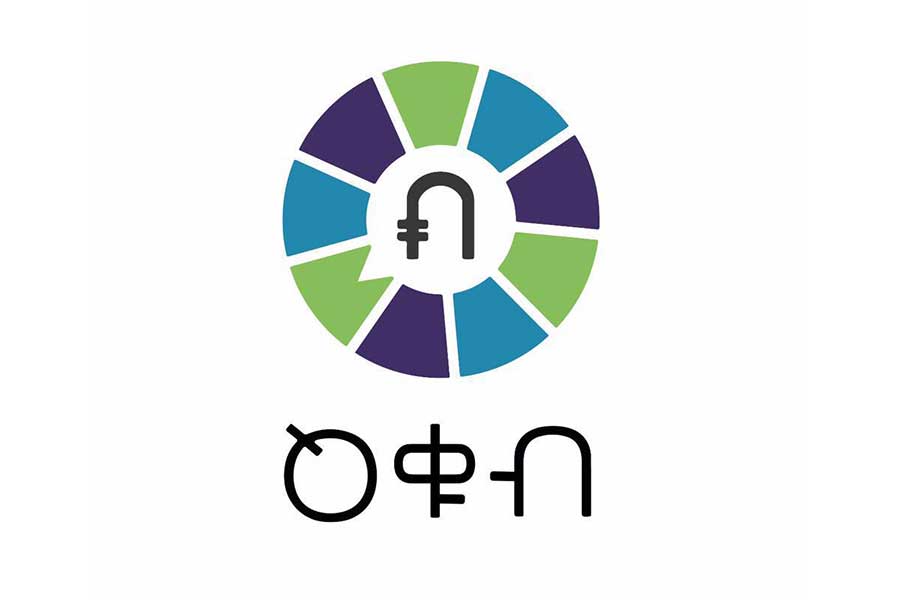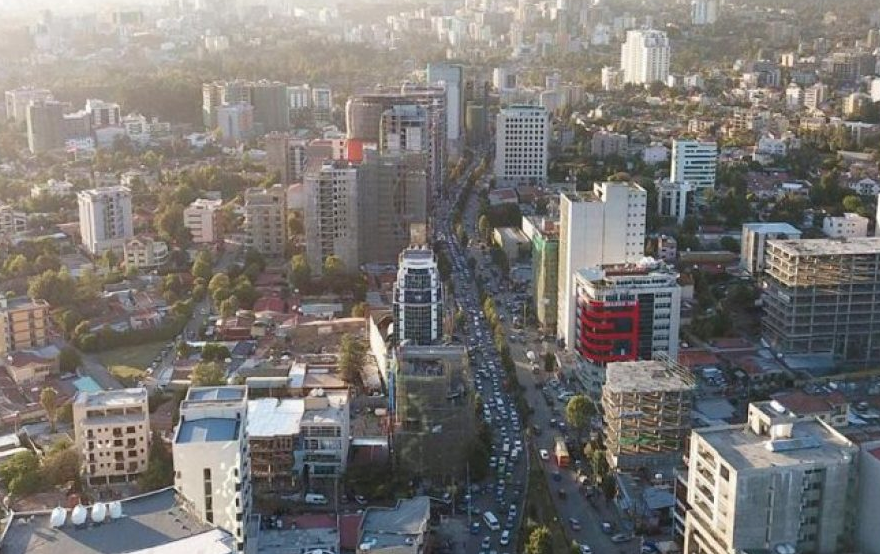
Nov 16 , 2019
By Eden Sahle
One of the horrific street scenes of Addis Abeba is children sniffing glue. I always wondered what the children on the street are inhaling through a plastic water bottle until the users themselves explained it to me.
I have interviewed the children to know their stories and how they get access to dangerous chemicals. It was difficult to speak to them because at any time of day, they constantly use the substance, which makes them frequently hallucinate and thus become unable to communicate properly.
Medical doctors say sniffing glue is highly addictive and causes serious health problems associated with significant morbidity, asphyxia, sudden mortality, damage to the brain, heart, lung, kidney, liver and bone marrow. Due to its easy availability and relatively low cost, inhalation of glue is widespread and growing. This is a massive social and economic crisis for the country.
These vulnerable and neglected children are unaware of the damage they are doing to their overall health. They buy the chemical from Mercato for less than five birr. What is also shocking is inhalant abuse, although prevalent around the city, is often overlooked by the concerned authorities, law enforcement and non-governmental organisations working on children’s rights.
Children comprise a large proportion of the Ethiopian population. Protecting the rights of children is not just a commendable deed but also a legal obligation. The Ethiopian Constitution incorporates provisions that specifically aim to protect the rights of children. The United Nations Convention on the Rights of Children, which Ethiopia is a signatory to, also stipulates children are entitled to special care and assistance. Such legislative measures alone, without effective and consistent application, cannot guarantee the purge of various abuses and exploitation of children in Ethiopia.
Children are not mentally and physically ready to care for themselves. The country is thus required to provide special protection and care for children through legal and institutional measures. For a poor country, it is no surprise that there is a huge gap between the law and the practice on the ground in terms of fully realising the rights of children. But it does not mean the country should neglect its responsibility to the next generation. Solving the problem from its source is vital.
Often families are to blame for bearing many children they cannot support in any way. Such families burden their children with making money. Most of the street kids spoke of how their families put so much pressure on them to support them financially that they came to the capital city from the rural parts of Ethiopia.
These are children who come to Addis Abeba seeking a better life for them and their families. And there are those who flee from broken homes and abuse only to find themselves in a much worse crisis. Rape and countless forms of abuse are committed with impunity on both genders. It is heartbreaking that they are all completely oblivious of the physical, psychological and emotional abuse that awaited them on the streets.
Rape and substance abuse have become normalised on the streets that no one does anything about it. These problems should become a major concern for society at large. It is incredibly admirable that hospitals have begun equipping themselves with wards that attend to patients who come with substance addiction problems. But the country still has a long way to go to create awareness about the dangers of drugs and to provide support for street children.
Alcohol and khatare being frequently used in Ethiopia, fueling sexual and physical abuse in many households. This problem is a lot more common and worrying in the regional states where most of the public resides.
Abuse of alcohol and khatstarts with traditional habits that assume local drinks and the stimulant plant are harmless, even to young children. Children outside of the capital city are exposed to khatand alcohol at a relatively young age and at times encouraged by parents. As part of the cultural and religious rituals, local alcoholic drinks such as tella, tejand araqi– which have four percent, 11pc and 45pc alcohol content respectively help heavy drinking among the different age groups proliferate.
Abuse of drugs is not particular to street children. For many children and youth around Ethiopia khat, tobacco and other drugs and alcohol are the usual way to start and finish the day. Often families and schools fail to educate them about the dangers and negative consequences of drugs. Such negligence is catastrophic not just for families but for the country.
Addiction is a disease, because users cannot easily withdraw from using even after experiencing adverse effects. It leads to decreased academic and professional performance, increased risk of contracting illnesses and psychiatric disorders such as exhaustion, hopelessness and insomnia. Drug abuse also inflicts damage to public health and safety.
The severity of the problem demands immediate and effective action from the government and the public to dedicate resources to prevention, education, interventions, including treatment and rehabilitation. Although it would be capital-intensive, research has shown that for each dollar spent, proper prevention mechanisms can save countries up to ten dollars in subsequent costs.
Goal-oriented and consistent national abuse prevention and family planning programmes can create informed communities. Community-based approaches to prevention and helping the victims could be valuable to avoid substance dependence.
PUBLISHED ON
Nov 16,2019 [ VOL
20 , NO
1020]

Fortune News | Dec 12,2020

Commentaries | Jul 26,2025

Radar | Oct 27,2024

My Opinion | Sep 13,2025

Commentaries | Oct 05,2019

Sunday with Eden | Oct 21,2023

Fortune News | Jun 10,2020

Featured | Sep 09,2019

Viewpoints | May 11,2019

Radar | Oct 23,2021

Photo Gallery | 180502 Views | May 06,2019

Photo Gallery | 170696 Views | Apr 26,2019

Photo Gallery | 161764 Views | Oct 06,2021

My Opinion | 137288 Views | Aug 14,2021

Dec 22 , 2024 . By TIZITA SHEWAFERAW
Charged with transforming colossal state-owned enterprises into modern and competitiv...

Aug 18 , 2024 . By AKSAH ITALO
Although predictable Yonas Zerihun's job in the ride-hailing service is not immune to...

Jul 28 , 2024 . By TIZITA SHEWAFERAW
Unhabitual, perhaps too many, Samuel Gebreyohannes, 38, used to occasionally enjoy a couple of beers at breakfast. However, he recently swit...

Jul 13 , 2024 . By AKSAH ITALO
Investors who rely on tractors, trucks, and field vehicles for commuting, transporting commodities, and f...

Nov 1 , 2025
The National Bank of Ethiopia (NBE) issued a statement two weeks ago that appeared to...

Oct 25 , 2025
The regulatory machinery is on overdrive. In only two years, no fewer than 35 new pro...

Oct 18 , 2025
The political establishment, notably the ruling party and its top brass, has become p...

Oct 11 , 2025
Ladislas Farago, a roving Associated Press (AP) correspondent, arrived in Ethiopia in...

Nov 2 , 2025
The National Bank of Ethiopia (NBE) has scrapped the credit-growth ceiling that had s...

Nov 2 , 2025 . By SURAFEL MULUGETA
The burgeoning data mining industry is struggling with mounting concerns following th...

Nov 2 , 2025 . By YITBAREK GETACHEW
Berhan Bank has chosen a different route in its pursuit of a new headquarters, opting for a transitional building instea...

Nov 2 , 2025 . By BEZAWIT HULUAGER
Nib International Bank S.C. has found itself at the epicentre of a severe governance...